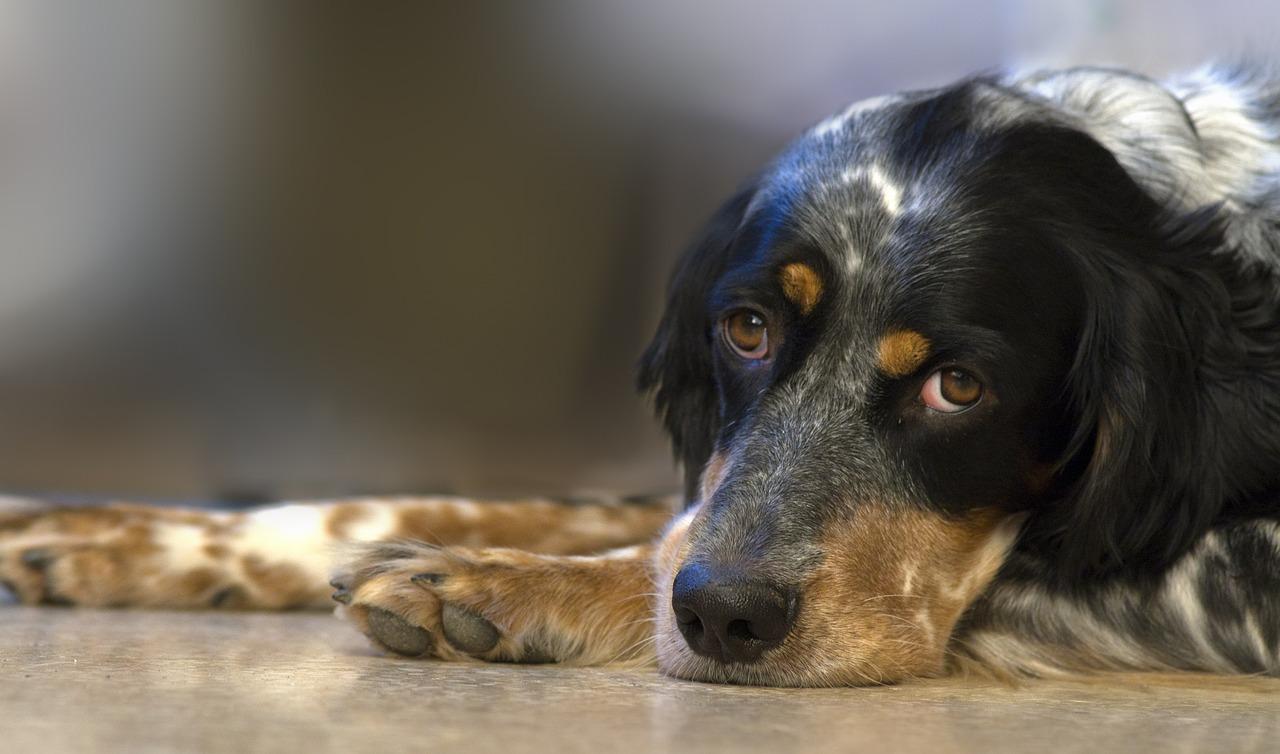
Like babies dogs are very susceptible to colic or abdominal pain caused by accumulation of gas in the stomach, since colic affects especially younger dogs and although many people consider that it should not be paid too much attention, it is important that it be treated as soon as possible, otherwise could be dangerous to health and the life of our little friend.
But what is canine colic?
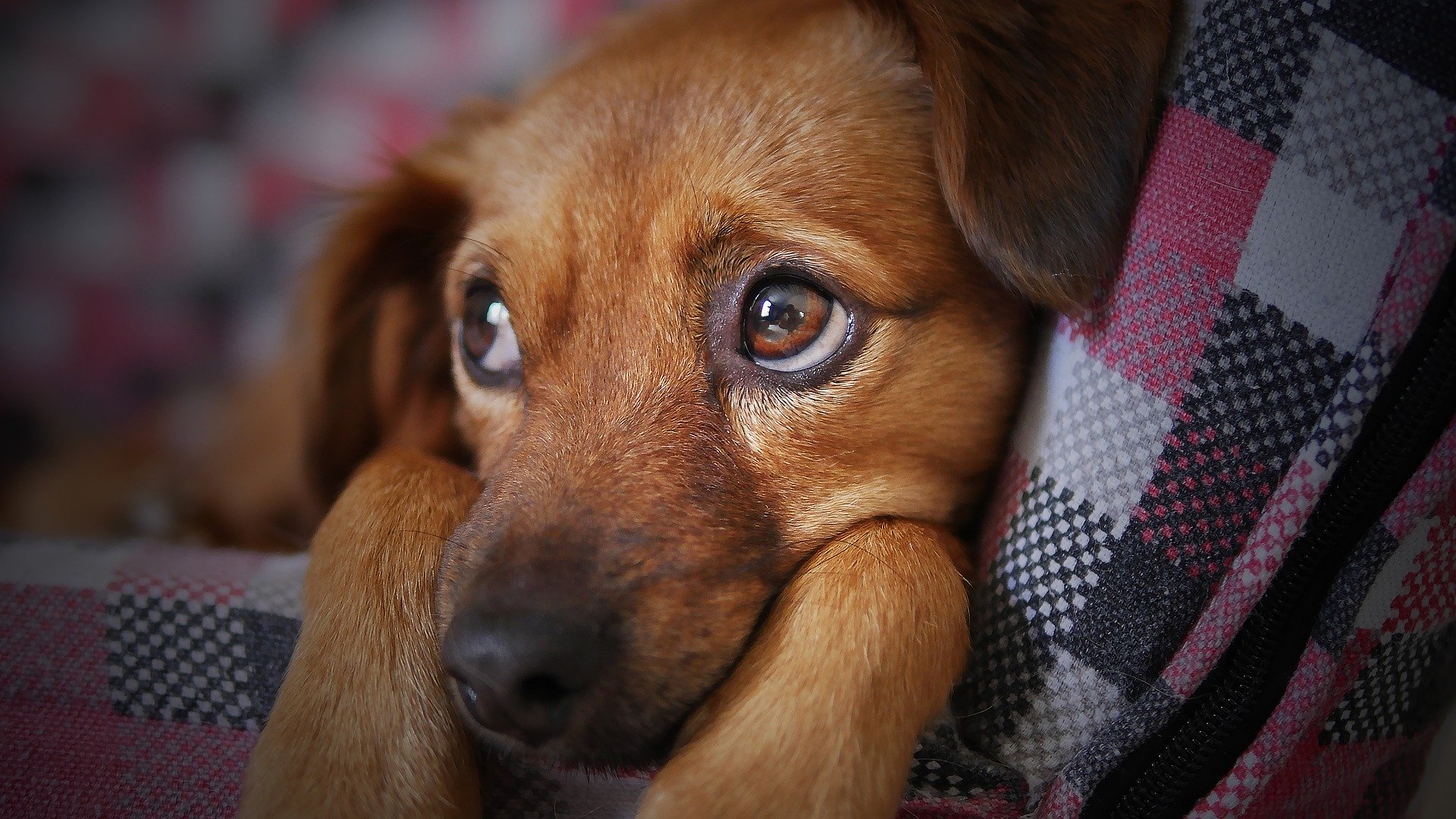
Colitis or colic is an inflammation of the large intestine or from several points, where animals that suffer from this disease frequently pass small amounts of stool They may even contain blood or mucus. In addition, they often feel exhausted and out of air, making it uncomfortable to defecate.
Some dogs show mild colitis symptoms, while others can be more severely affected by this disease and there are even dogs that are more prone to colitis regularly.

Good diet and anti-inflammatory treatment adequate will contribute greatly to reduce inflammation and prevent colitis from recurring, as dogs that suffer from this disease often need anti-inflammatories, at least at the beginning of this, since these drugs quickly reduce inflammation and improve clinical signs.
Types of colic in dogs
Acute colic
In most cases of colitis or acute colic, the dog becomes ill suddenly and many times the reasons can be given by conditions such as unbearable weather, since dogs are very sensitive to heat, therefore being exposed to unbearable hot conditions usually makes them sick and suffer from this type of colic.
The disease can also be caused by parasites such as worms, that circulate on the dog's system because it has been able to eat from the garbage rotten food, but not only that, but it can also occur because the dog lives in unsanitary conditions.
El acute colic in dogs, it is usually cured with a short course of medications that have been prescribed by the veterinarian.
During this time, the dog should be fed easy to digest foods. However, raw meat should be avoided as much as possible, being the boiled meat with a little oil in crude a suitable alternative.
Chronic colic
This incident occurs when the dog suffers from colic for several weeks or months as symptoms reappear and may become increasingly severe. Another reason for the constant intermittence of colic could be due to simple dog food allergies, which have to do with chemicals and artificial ingredients in food.
So you have to be very careful when the colitis or colic are already chronic, since this disease can turn deadly for can.
Ulcerative colic
This type of colic is also known as boxer colitis because this breed of dogs, the Boxer, are very prone to it.
La ulcerative colitis makes our pet suffer from a great deal of pain and bleeding during defecationAs it is believed that dogs suffering from this disease have low immune system against bacteria in the colon, which leads to this serious situation.
Dogs with this disease they begin to show signs from the age of 2 and these symptoms worsen with age.
Dogs affected with ulcerative colitis do not respond well to conventional anti-inflammatory drugs such as metronidazole or tylosin sulfasalazine, each of which has been shown to have excellent results in normal colic in dogs, although the enrofloxacin It is one of the few antibiotics that shows immediate improvements in the condition of dogs.
This antibiotic is the most effective when it comes to kill negative bacteria which are the main causes of colic.
What are the causes of colic in dogs?
Colic is mainly caused by the type of diet that we give to our pet, that is, if you are incorrectly feeding your animal with spoiled or decomposing products, with garbage, with products that may be contaminated with pesticides or toxic substances or poisonous this annoying abdominal pain can be generated.
Similarly, colic can also occur due to viral or bacterial infections.
Dietary changes
A sudden change in the diet of your dog's food can cause a bout of diarrhea or colicSince the digestive tract of the dog adjusts much worse to these changes than the digestive tract of the people.
It is called 'adaptation' diarrhea is common in dogs who are still unweaned or who suffer from a sudden change in their diet upon arrival in their new home, since any significant change in the diet of your dog or puppy should be done gradually.
This food transition takes place over a week and is about mix the new food with the old to gradually decrease the amount of it in favor of the new food, since the gut Your dog will adapt to the new food quickly and without suffering from any type of diarrhea.
Eat excessively
If your dog eats too much or if he eats indigestible food (remains of food, bones, milk, etc.), you have a much higher risk of developing diarrhea, this being the typical case of cow's milk, since cow's milk is not suitable for much less puppies, since it lacks a type of enzyme called lactase, which is what allows you to digest food well.
The same thing happens with starchy foods, like undercooked potatoes, since starch ferments in the intestines because the dog cannot digest them well, causing the much dreaded colic.
Besides, the foods that contain poor quality protein, also cause diarrhea from a bad digestion caused by this type of protein, this being also the case of industrial foods of very poor quality and made with cartilage and bone.
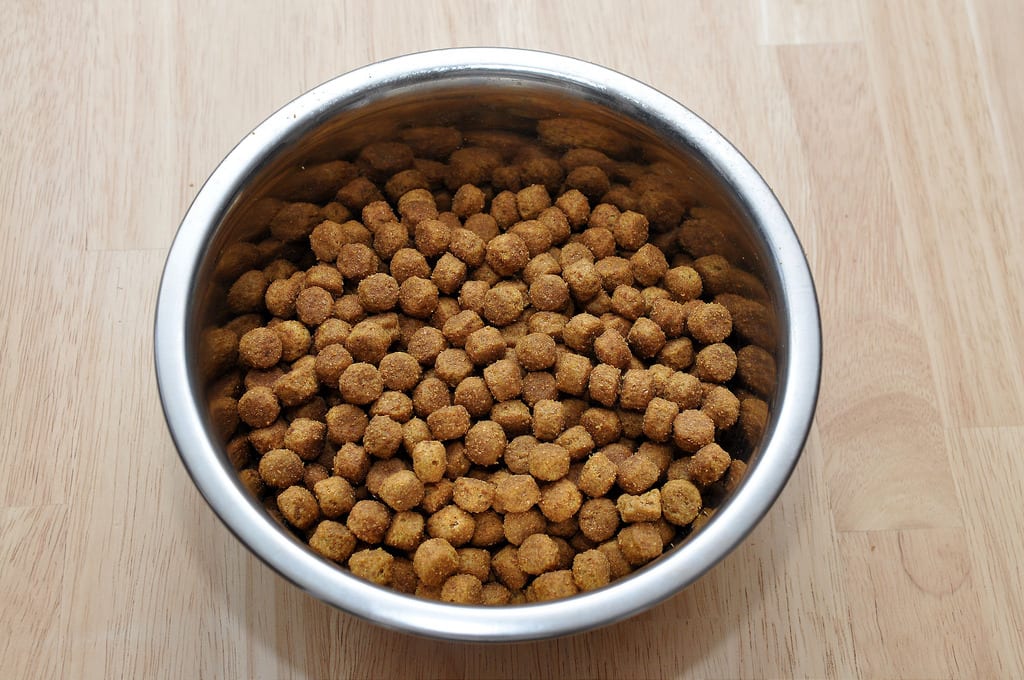
Parasites
The parasites that inhabit the gastrointestinal tract are the irritating factors of the gastrointestinal mucosa, as these can cause severe colic, especially when there are many of these parasites.
Therefore, it is important that your pet regularly takes a internal antiparasite to avoid these digestive disorders, being able to take every month if it is a puppy and every 3 or 6 months (spring and fall), when the dog is in its adult stage.
Infectious causes
Some viruses such as rotavirus, parvovirus, coronavirus and bacteria such as Salmonella and / or Campylobacter are responsible for digestive disorders, but we have to say that for some of the cases exposed above there are very effective vaccines, as is the case with parvovirus or distemper.
In other cases, there is no prevention against these viral or bacterial diseases, so we have to be very careful, since in winter there are often colic episodes in dogs.
Toxic causes
The toxins that cause colic are numerous, since some plants contain irritants to the digestive tract, such as latex and laurel ficus.
What are the symptoms of colic in dogs?
If you are wondering how to tell if your pet has a abdominal colic you should pay close attention to his behavior. If you notice down, inappetent, with discomfort or pain As soon as you touch the abdominal area, it is important that you take it to the vet as soon as possible, so that it is he who verifies if it really is colic or if it is another disease.
The specialist and to diagnose the disease, will perform a careful examination that may include not only a physical examination, but also blood samples, urine samples and even a biochemical profile.
Digestive symptoms
- Stools occur more frequently or are larger and often have an attention-grabbing soft or liquid effect.
- In some cases, the dog also represents vomiting and this is known as
- The dog's belly may make abnormal noises and may even sound like a gurgling.
- Often the animal also has digestive spasms (colic) and may have a hard belly.
General symptoms
These are not always present because they depend on the cause of colic of the dog, although in some cases your pet may have fever and find yourself tired.
A dog with severe diarrhea often refuses to eat, tending to drink heavily, which can make the illness even worse with vomiting.
If the colic is very important and lasts for several days, your dog may be dehydrated, something that happens frequently in the case of puppies with severe diarrhea.
Treatment of colic
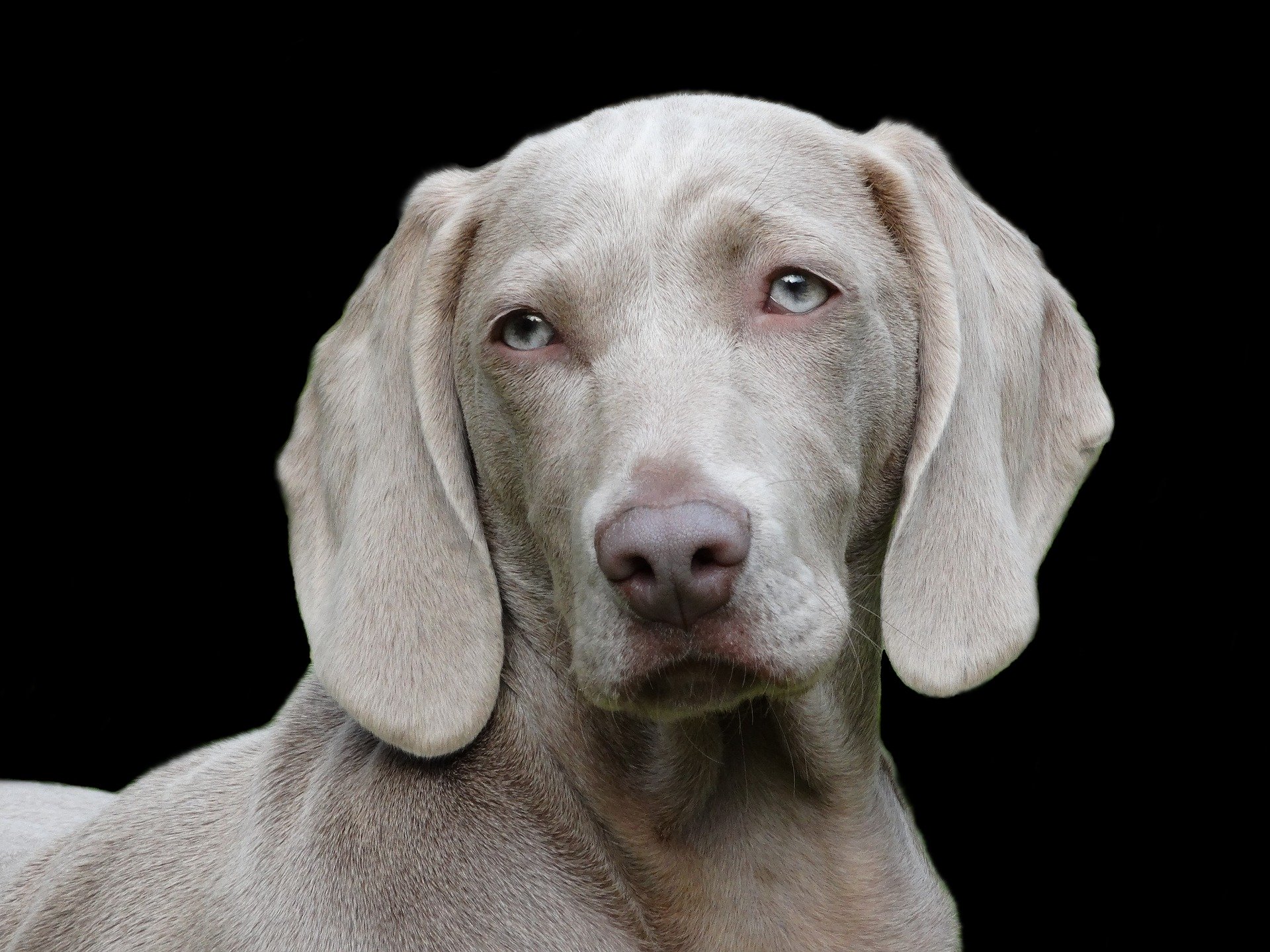
The main measure to take is put the dog on a diet for 24 to 48 hours after observing the disease, as doing this leaves the intestinal mucosa "Resting".
The dog should also drink water, but in small amounts.
The resumption of the food supply has to be done little by little and has to be given digestible foods like cooked chicken and carrots. These foods should be given in several small meals spread throughout the day.
As soon as the dog begins to have more solid stools, it can gradually return to its normal diet.
Medical treatment
Depending on the severity and cause of the diarrhea, your vet will prescribe different types of drugs:
- Topical medications: This type of medicine is called intestinal dressings. They are administered orally and will be distributed throughout the wall of the digestive tract to absorb bacterial toxins.
- Traffic regulators: These are only useful when the diarrhea is so severe as to prevent the animal from continuing to have profuse diarrhea.
- Antibiotics: They are not always useful, unless the dog has significant systemic symptoms or in case he suffers from bacterial colic, which if so, intestinal antiseptics will be prescribed by the vet.
- Rehydration: This is absolutely necessary in severe acute diarrhea, especially in puppies. Rehydration can be done orally but in severe cases, a transfusion is required.
The causes of diarrhea are many and the treatment will depend on the clinical signs observed by your veterinarian and on the severity.
Natural remedies for dogs with colic
To cure colic (only in recurrent cases, especially chronic), it is important that your dog undergoes a Physical exam so that the underlying causes can be identified and treated.
However, the Natural medicine As herbs they can be used to relieve the uncomfortable symptoms of colic.
Herbs to relieve colic
The herbs that are carminative (i.e. herbs that relax the stomach muscles and relieve intestinal gas) are useful for removing excess gas and stopping flatulence in dogs. Here are some of the carminative herbs that can easily and safely help your dog:
- Chamomile
- Fennel
- Dill
- Ginger
- Thyme
- Menta
Herbs for inflammation
If your dog's colic seems to be caused by inflammation, the following herbs are very helpful:
- The slippery elm
- Marshmallow root
These herbs have anti-inflammatory and mucilaginous properties, being very effective in reduction of inflammations inside and on the body, apart from being soothing, lubricating and creating a protective barrier between mucous membranes, such as stomach and intestinal linings and substances that contribute to irritation.
Herbs for ulcers
If you suspect that your dog's colic is caused by a ulcer, these herbs will come in handy:
- Regaliz
- Slippery elm
- Aloe vera
Licorice stimulates cell growth, helps protect the stomach lining and relieves ulcers.
The slippery elm calms, lubricates and protects the stomach lining and the digestive tract and aloe vera juice prevents nausea and helps ulcers heal faster.
Herbs for infections
If some kind of bacterial, fungal, or parasitic infection is part of the underlying cause of your dog's colic, the licorice root will be very useful.
How to prevent my dog from getting colic
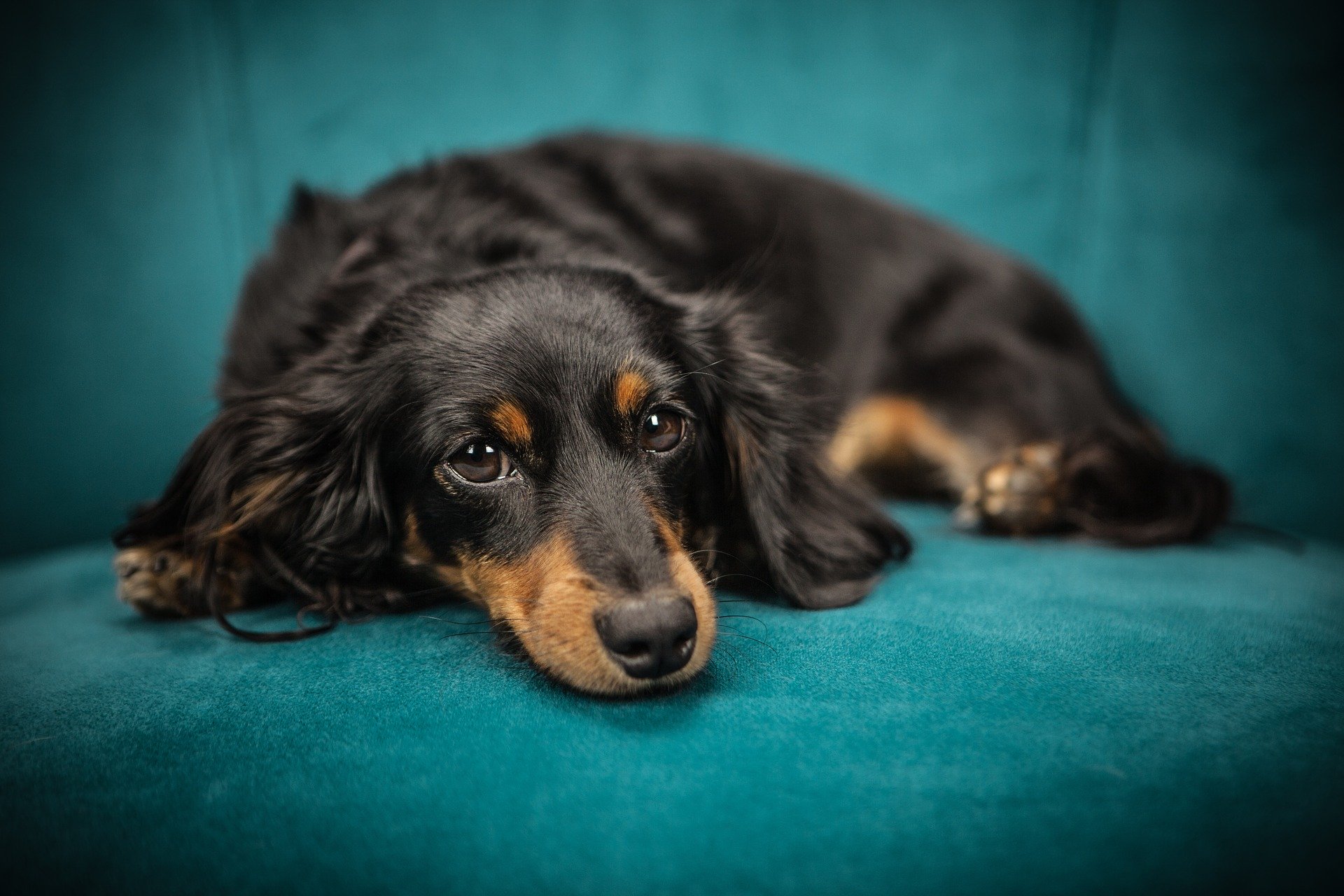
Now that you know everything related to colic in dogs, we know that it is not a situation that you would like your pet to go through. So instead of treating the problem, why not think about avoiding it? In fact, there are many tips that you can apply every day and that they serve to prevent colic. It does not mean that following all these recommendations your dog will not have them, but it is more complicated for him to suffer from them.
Among the tips are:
Take care of your diet
In the past, dogs fed on household scraps, or even scraps from butcher shops, as many owners bought what the butchers were going to throw away to cook and feed to their dogs. Which means that, mainly, they ate meat.
However, when the dog food began to come out, although there were many reluctant to have a ball replace a good bowl of meat, little by little the feeding of the animals was changed, and this caused a change.
However, on the market there is a wide variety of feed of different prices. And although it seems that they are all the same, they are not. In fact, according to the experts themselves, a feed that does not satisfy the dog, that does not give shine to its coat, and that does not look active, is not a good feed. What's more, a poor diet can make your dog sick. And this is where colic comes in in dogs.
And it is that, a food that is not suitable, that does not have all the nutrients and provides a quality and balanced diet, would cause a higher incidence of colic, as well as other diseases. U.S we recommend this type of feed so that you are in good health and have your nutritional needs well covered.
Be careful with the change of feed
This is common. You run out of feed, or you have little left, and you have seen an offer and you go for it. You finish the usual feed and put the other one. And he does not eat.
First, when it comes to changing your pet's diet, you have to do it slowly. The reason is that, when there is a sudden change in your diet, your digestive system does not tolerate it, and it can also cause him not to eat until you give him what he is used to.
So, if you are going to change brands, it is best that you dedicate between 2 and 4 weeks to that change so that the dog gets used to it and does not cause colic or rejection problems either.
Do not give him food from your table
We are used to the fact that when there is some food left over, or we throw food away, dogs are there to be a walking garbage. Which means they eat it. For them it is like a candy because it is not something usual and has a flavor, texture, etc. different from what they always eat.
However It is not suitable, especially if you have a dog prone to colic. Now, I'm not going to tell you to ban any type of food or waste. For example, a slice of ham is not going to hurt you; but a half-eaten chicken thigh, with its bone and all, yes (because it can also cause an anal hernia and have to operate urgently because it can not evacuate).
En general, the food we eat is not suitable for a dog's stomach. Spices, salt, sugar ... are harmful, hence you must be very careful to give them other types of foods that can damage their digestive system and, with it, cause problems.
Water always fresh and available
Dogs usually drink a lot of water. It is the way they hydrate, but they also do it as a helps when they have stomach problems. Therefore, it is important that water is always available and that it is fresh and clean to avoid, among other problems, possible parasites that enter your stomach and make you sick.
Teach your dog not to eat anything outside the home
You take your dog out and he ends up approaching someone who gives him a "treat", or worse, sees something thrown away and eats it. It is the worst thing you can do, but it has a solution: teach him not to eat outside the home, and less off the ground or from strangers.
There are many colic that your dog will suffer and that, no matter how hard you try to avoid them, you will not be able to. Being in contact with other dogs, drinking water in places that are not suitable, etc. can influence their occurrence.
But if you train your pet not to eat any garbage, food thrown in the street, or not to accept food from anyone, it will help prevent these problems.
Regular check-ups with your vet
We tend to not take it to the vet if a dog is fine. Until you see that he is sick, you do not go. And that is a problem. Just as we use doctors to assess our health, it is also recommended that we do the same with dogs.
It doesn't mean you have to wear it often, but yes an annual visit is recommended and, in case of problems, or that the years go by, these visits are made every six months. In this way, the professional can detect some situations that he will go through in time and remedy them before they become worse.
Dog breeds prone to digestive problems: colic, torsion ...
There are many dog breeds that can suffer from colic. In fact, although it is thought that small breed dogs have more digestive problems (because they are more delicate), the truth is that this is not the case. For example, the Boxer is one of the dogs that is most likely to suffer from ulcerative colic. For their part, a German Shepherd, a Great Dane, or even a Saint Bernard, also have digestive problems, such as colic or stomach torsion.
Overall Large and small dog breeds have the most digestive problems they can give. Not just colic, but other milder or more serious problems.
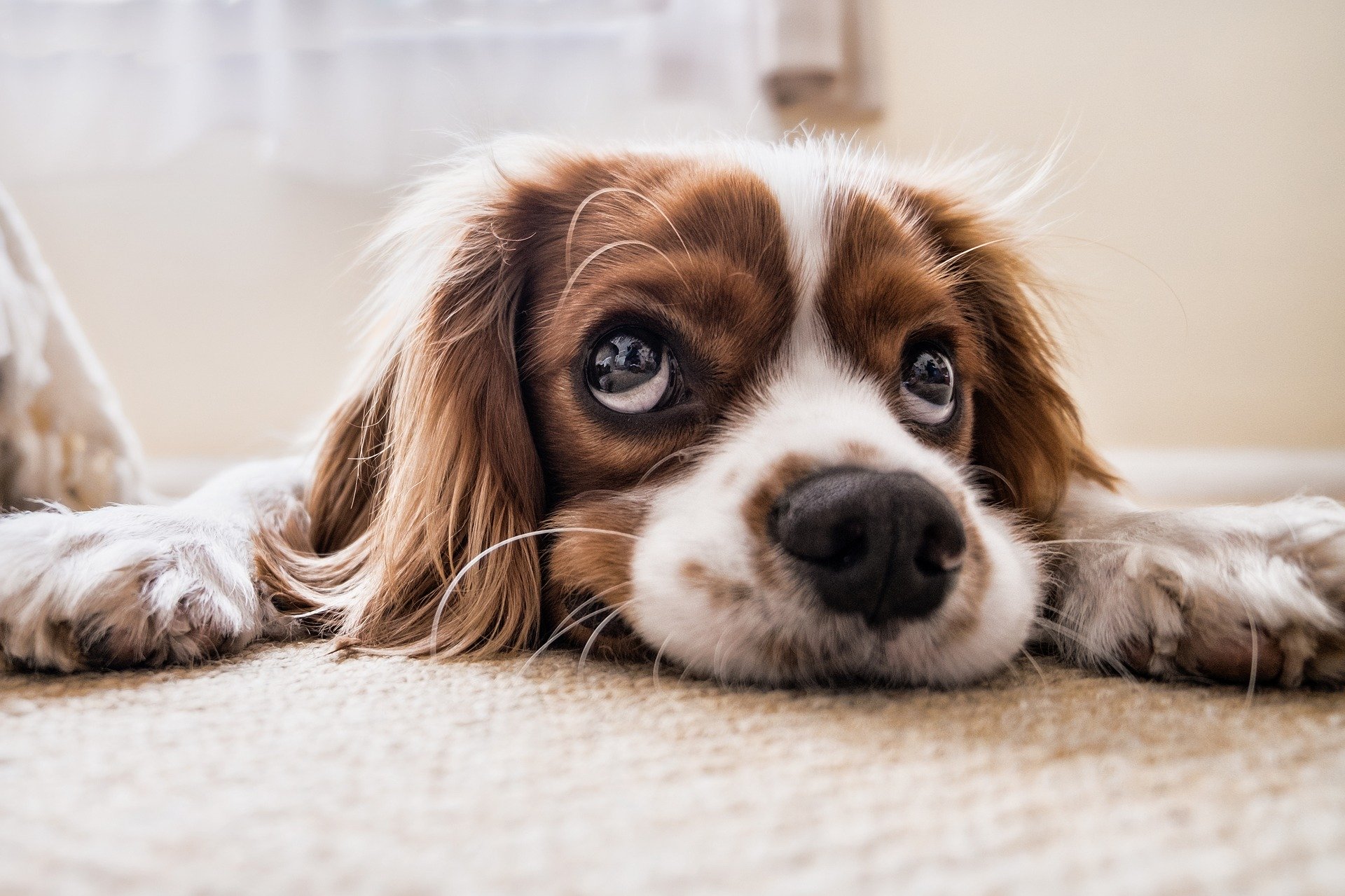
It has been a great help to me because my puppy suffers from constant colic, they suggested that I take a blood sample ...... as he says, I will follow his advice
I need help my dog is 28 days old and has stomach cramps. That I give. The vet observed her on the 1st day and says that everything is over. But he still has colic and regrets a lot. I made her ablle go to the vet and she says that I have spoiled her. What I do.
Hello: My dog is a golden age of 11 just completed and a month ago she started with some attacks with spasms, she has good analytics but in recent days they have increased, I have been told that it seems that she has some stone in the small intestine. He has been given medication for biliary colic, but the attacks have made him somewhat blind and lightheaded. When I give him his belly it gets very hard, what can I do more.
Hello, an insult, my puppy is chitzu and since yesterday I see that he is rolling over with stomach pain. And I see how he kicks and starts to run that is due and for that reason he fries his osico
My Maltese dog had 4 puppies yesterday, 2 of them died, they were born prematurely and one is colicky, apparently because she gets hard and cries and I don't know what to do.